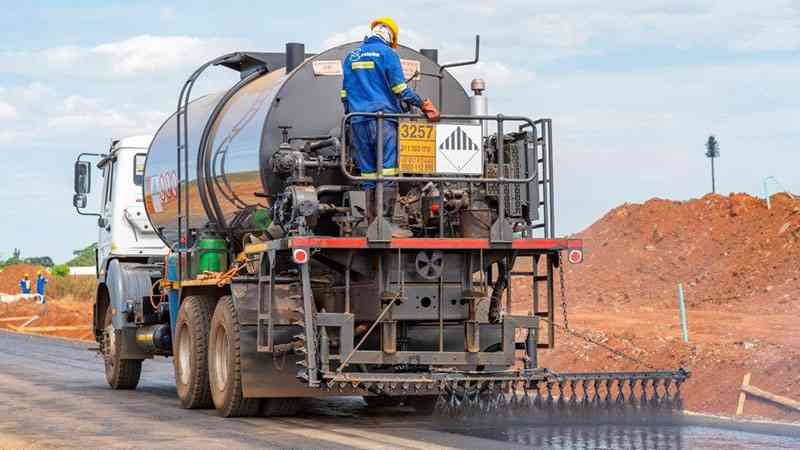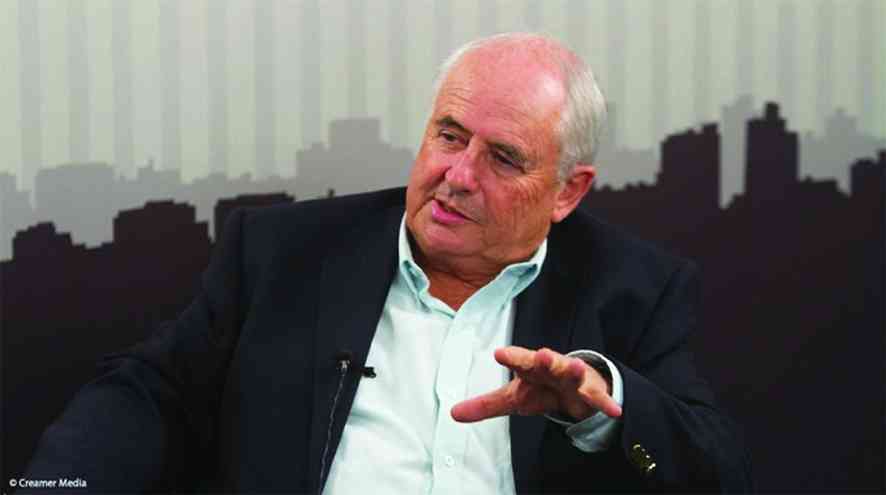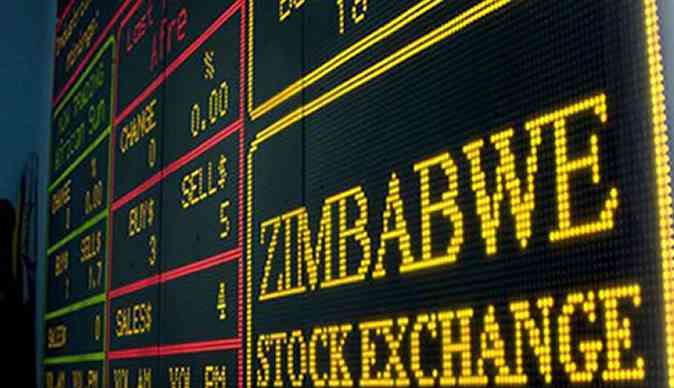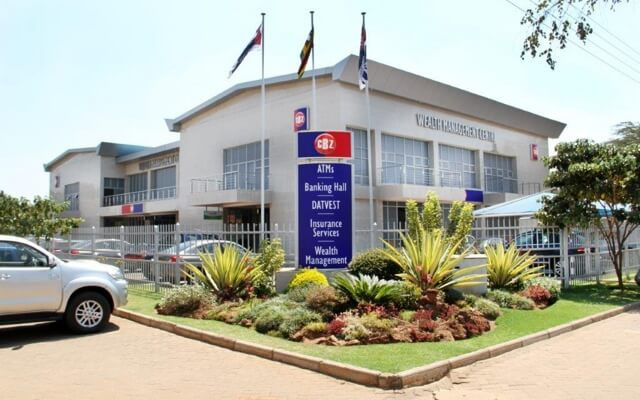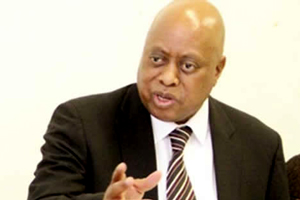
Once the industrial hub of the nation, Bulawayo has suffered de-industrialisation effects over the past two decades, with over 100 firms closing down leaving thousands jobless.
In a bid to revive the local industry, the government has designated the city as a Special Economic Zone for leather and textile. NewsDay (ND) business reporter, Mthandazo Nyoni interviewed businessman and industrialist, Delma Lupepe (DL) over these issues. Below are the excerpts:
ND: As an industrialist, what factors do you think contributed to the demise of Bulawayo’s industry?
DL: I think if you want to look at Bulawayo, you must understand historically how it became the industrial hub. The colonial government that we had here, their market was totally in South Africa or through South Africa.
So that’s why you find the National Railways of Zimbabwe was located here in Bulawayo, the Cold Storage Commission was located in Bulawayo, and all these various industries, because their aim really was to export, if they were exporting to South Africa or through South Africa. That was during the colonial era. That is why you find everything, this was the hub. I don’t think Rhodesia even thought of exporting to Malawi, Zambia and places like that.
The whole focus was South Africa, but with the advent of independence, as an African country we had to take our rightful place within the Sadc region or within southern Africa and look at exporting to other countries as well. So this is why we started looking at having other industries even in Harare and other places. But at the same time the change in focus left Bulawayo out.
That is how industry was left behind in Bulawayo.
ND: Do you think perennial water shortages have contributed to the demise of Bulawayo industry?
- Chamisa under fire over US$120K donation
- Mavhunga puts DeMbare into Chibuku quarterfinals
- Pension funds bet on Cabora Bassa oilfields
- Councils defy govt fire tender directive
Keep Reading
DL: Not really. It may have contributed, but its contribution was negligible in my view. But the fact that the machinery was already old and needed replacement even during the colonial era, and come independence we didn’t have knowledge or vision or focus to say, look we need to take this industry a step higher. Truly speaking, those that left and those that remained, remained until they saw that the equipment was totally useless and they sold it to black people like myself, who didn’t have an idea about industry.
But getting in there we immediately knew that we needed to recapitalise and re-equip the business, but unfortunately by the time we got in, which is when they let us in by selling the businesses to us, there was the foreign currency issue and there wasn’t enough money.
So there is need to create a fund for Bulawayo. The government, perhaps, can even step in a particular company and say, look we take 40% shares, but we are giving you the money to recapitalise and as you pay back we will also reduce our shares. The amounts involved are too big for our local banks which have, for a long time, been offering short-term expensive money. In other words, it’s money really for trading not for recapitalising whole industry.
ND: Are interest rates offered by local banks comparable with those in other countries?
DL: It depends really on what you want to use the money for. If it’s money for trading purposes, yes they could be slightly high, but if you want to recapitalise, to retool an industry you need cheap money and that is long-term money.
You don’t want a loan that is three years or two years in tenure. No, that’s a short-term loan. You know there are loans that are much longer than that, maybe 10 years or five years going onwards.
There is money out there that can be found. We have ideas of where money could be found. Not just for Merspin, but even for Bulawayo industry. But it’s got to be done correctly. You have to have an audit. Start off with an audit of Bulawayo industry.
What industries have closed, reasons for their closure, can they be resuscitated, can they be revived and do they have an export market or local market? All those issues should be put together and how much do each of those companies need to retool and revive them?
Once you have all that data and all that information together and you know how much we are looking for, we will point the government in the right direction.
But they will have to facilitate somewhere along the line. We know where we need them to facilitate. But you have to know how much you want and what you needed it for and to prove that, yes, this is a viable project.
Just as you do a company business proposal, Bulawayo has got to come up with a business model and with a business proposal to anybody who is going to fund to the tune of $500 million or $800 million or even a billion for that matter. It’s something that is very doable I can assure you. We have spoken to people out there.
ND: What can be done to address the issue of de-industrialisation in Bulawayo? What is the role of the government and private sector there?
DL: If we could link up with organisations like the National University of Science and Technology and the private sector can come in this way.
Probably the university has got financial constraints in carrying out an audit or research on the various industries. That is where the private sector can chip in financially, to enable them to finance such an audit or an exercise.
Once we have a complete document, that we are confident of, there are people out there who are willing to put in the $500 million or $800 million into the Bulawayo industry, but the government should facilitate.
The government’s role here is to facilitate, in other words, providing security. But as individual companies it becomes a bit of a challenge because you now have things like country risk which come in. But if the government is at the forefront, together with us in negotiating these amounts and they put in certain securities that are negotiated government-to-government with these financial institutions, you can raise that money.
We already know of certain institutions that are willing to talk to the government along those lines, provided they get security for the investment.
Those financial institutions speak to their governments and their governments speak to our government in terms of security and once that has been facilitated, money can come in.
ND: Do you think Bulawayo will one day reclaim its status of being the industrial hub of the nation?
DL: It can easily do that because South Africa is still our biggest trading partner. Yes I did indicate that we are now trading with other African countries to our north, but South Africa is still our biggest trading partner. But even sending goods from the Bulawayo industry to the north is not an issue. We can still be the employment centre of the country, not just being the industrial hub.
ND: The government has designated Bulawayo as a Special Economic Zone for leather and textile. Do you think this will solve the city’s industrial woes?
DL: I don’t think they should just limit them to clothing and leather. No, but declare an area a special economic zone then people set up specific industries. Don’t just target leather and textile. This is putting the cart before the horse.
What should come first is the revival of the industry rather than rushing for special economic zones. Yes, it helps to invite investors in, but at first there has got to be some base to which they are coming to invest in. It’s an attraction to an investor, but there is more to what is required.
We need the information because with the passage of time some of the industries are now irrelevant, others are still relevant, some of them can adjust and become relevant and so forth. We can even open new industries and do different things. But we need that research; we need that audit to find out what we have and what we need to do with what we have, either to change it or remove it altogether or to bring in new industries.
We keep on saying, in general, that we want industries reopened without being specific. But once we have information, we know we want industry re-opened, specifically this company, that company and that company and they need so much money and then you are talking. But we cannot continue talking in general terms. We now need to get into the specifics.
When you want industry re-opened, which companies in Bulawayo industries, producing what? Do those things have a market? Do those things have an export market? All those factors help you strengthen your case when you go out there looking for money.
ND: What is the latest with regards to Merspin and are there any prospects of the company coming back to life?
DL: It’s no secret that we have been unhappy with the judicial manager. He was chosen, unfortunately, by workers and we have given him a long rope — six years. Yes, during those six years we have suffered because the company has not been operating, the workers have not been working and we too, as the shareholders, the creditors have been on us because we had guaranteed some of these loans. But I think enough is enough.
If in a period of over six years the judicial manager couldn’t get the company resuscitated, it’s time for him to give someone a chance to try. And we know exactly what to do with that company, once it comes out from that judicial manager who has failed.
Without pre-empting anything, there is a legal process that is taking place and you will see us up and running, that we are certain of. We have been waiting for this judicial manager to come up with something for six years he has been promising and he hasn’t come up with anything.
We are saying we have the ideas on how to revive Merspin which are concrete and we are ready to implement them as soon as we have somebody who can run the place and I think it’s a matter of weeks before we get that place up and running.
ND: How have you suffered as a shareholder due to the delay?
DL: Obviously we had put a lot of our property as security to support the loans that Merlin had taken and when the place is not operating and the creditors want their money, they fall back on the guarantees that were given and then they go for those properties.
So, some of the properties have been sold already. So when we believe that the company is actually viable, that can be run profitably and pay off its own debts, it’s not for sure that we should pay the company’s debts. It’s for that company to pay its debts. So the sooner it gets running and pays its own debts, then it relieves pressure from whoever has guaranteed those loans. In this case it’s us the shareholders.
We have got a plan ready to be implemented. We have investors ready to come in to run Merspin. It’s also one of those companies that have to adjust their business model to become more relevant to the current demands in terms of products. Yes, there is still a demand for nappies, but there is a greater demand for diapers. There is a great demand for sanitary materials.



